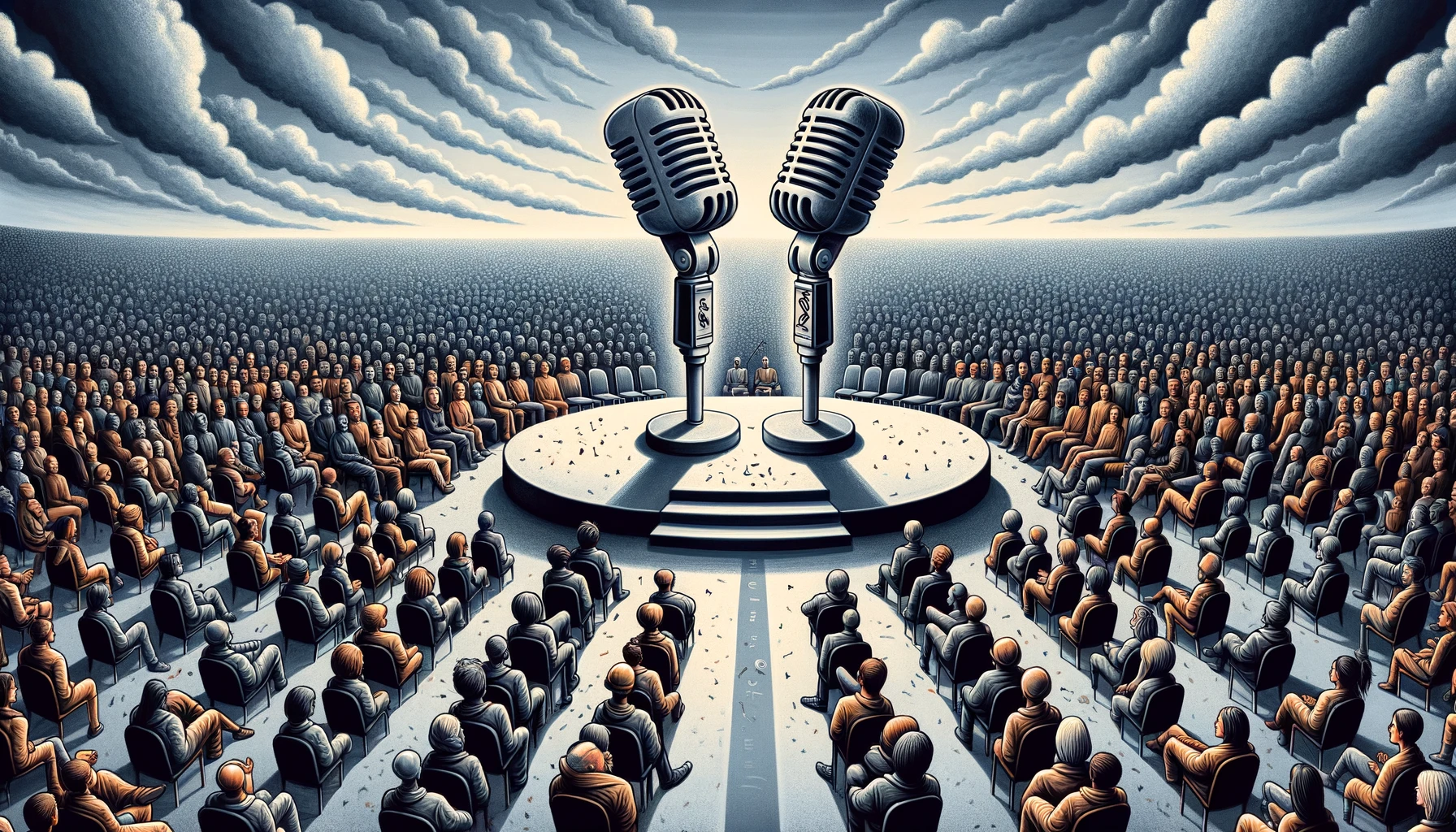
A Call for Diverse Voices
The Irony of Silencing
The implications of silencing dissenting voices and the importance of maintaining a diverse spectrum of opinions for a healthy dialogue.
In a world humming with the constant buzz of opinions, a recent squabble caught my eye, stirring thoughts deeper than the surface spat it might seem. Neil Young, a voice once synonymous with rebellion against the grain, has found himself at odds with Joe Rogan’s podcast on Spotify, citing the spread of misinformation as his bone of contention. The irony? A man who made his name and fortune challenging the status quo now wishes to silence another for doing essentially the same thing. It’s an intriguing turn of events that begs the question: when does the rebel become the very establishment he once railed against?
Let’s step back for a moment and think about this. It’s not about picking sides in a debate between two public figures. Rather, it’s about understanding the deeper implications of our reactions and responses to dissenting voices. The essence of freedom, after all, includes the liberty to choose who we listen to and what we believe. If a voice doesn’t resonate with us, we have the power to simply turn it off. But what happens when we start silencing those voices? Where do we draw the line between harmful misinformation and a perspective that simply challenges the popular narrative?
Neil Young’s clash with Joe Rogan is more than just a disagreement. It’s a mirror reflecting our collective struggle with the concept of freedom of speech and the ever-blurring lines between truth, opinion, and misinformation. It raises uncomfortable questions about our own beliefs and the lengths we’re willing to go to defend them. Have we, like Neil, become so entrenched in the system that we’re willing to silence opposition to protect it?
This is not just about two millionaires in a spat over podcast content. It’s about you and me, and how we navigate a world where narratives are increasingly polarized, where the line between defending our truth and imposing it on others is dangerously thin. It’s a reminder to question not just what we’re told but why we’re so quick to defend or condemn it.
Neil Young, with his $200 million fortune, stands as a testament to the complexities of human nature and belief. His music, once anthems of defiance, now serves as a backdrop to a debate about censorship, freedom, and the integrity of our convictions. It begs us to ask: do we truly stand by our principles, or do we bend them when they no longer serve our interests?
And what of Joe Rogan, suddenly thrust into the spotlight, not for the content of his podcast but for the controversy surrounding it? In an odd twist of fate, Neil Young’s attempt to silence Rogan has only amplified his voice, proving once again that there’s no such thing as bad publicity. But is this merely a distraction, a surface-level tussle masking deeper issues of control, censorship, and the right to question?
As we ponder these questions, let us not lose sight of the essence of individuality and the importance of diverse perspectives. In our quest for truth, let’s remember the value of dialogue, the power of listening, and the importance of discerning for ourselves what resonates as truth. May we navigate this complex world with open minds and hearts, willing to challenge our beliefs and consider the possibility that, sometimes, the fight to silence might just reveal more about us than the voices we seek to mute.
In the end, the choice of who to listen to, what to believe, and how to act on those beliefs remains ours. Let’s choose wisely, embracing the myriad voices that make up this song of human experience, even when they challenge us. For in that challenge lies the opportunity for growth, understanding, and perhaps, a more nuanced view of the world and our place within it.
